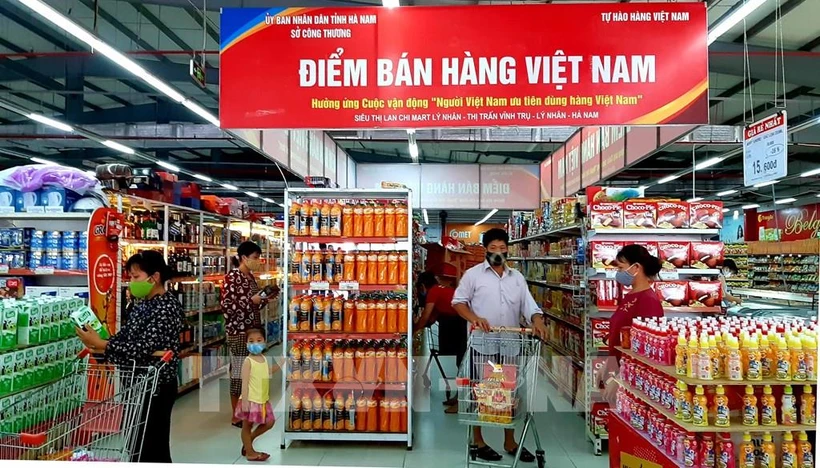Vietnamese retailers racing to green up brands
In the face of fierce competition in the world market, Vietnamese retailers are racing to “green up” their trademarks towards sustainable brands, thus maintaining its home ground and reach out to foreign markets.

In the face of fierce competition in the world market, Vietnamese retailers are racing to “green up” their trademarks towards sustainable brands, thus maintaining its home ground and reach out to foreign markets.
According to the Ministry of Industry and Trade, Vietnam's retail market has a scale of more than 142 billion USD, and is forecast to increase to 350 billion USD, or nearly 2.5 times higher, by 2025.
Nguyen Anh Duc, Chairman of the Association Vietnamese Retailers, said that after nearly 15 years of implementing the campaign of “Vietnamese people prioritise Vietnamese products”, the proportion of domestic customers using Vietnamese products has increased sharply from 73% to more than 85%.
Consumers have enjoyed increasing access to many types of domestic goods with high quality, reputation, and clear origin, he said.
Meanwhile, new generation free trade agreements (FTAs) and a series of bilateral and multilateral FTAs that Vietnam has signed have created a large network of markets for domestic firms, said Duc.
He noted that the national brand of Vietnam has grown fast, at 102% in the 2019-2023 period. Vietnam's brand value in 2023 topped 498 billion USD, an increase of 15.6% compared to 2022, ranking 33rd out of the 121 countries evaluated.
According to a survey by the Business Association of High Quality Vietnamese Products, 80% of the sellers said that products by Vietnamese businesses reaching a high quality level received attention from consumers, showing their increasing confidence in Vietnamese products.
Pham Phuc Ngoc Trai, Founder and Chairman of the Packaging Recycling Organisation Vietnam (PRO Vietnam), said that currently, Vietnamese firms are entering a “race” of product improvement and brand development in order to not only enhance their competitiveness but also meet legal regulations, including those in environment and social governance (ESG).
Statistics show that currently, the national standards system of Vietnam has developed about 750 standards aimed at promoting green growth.
However, many businesses said that the biggest challenge they are facing in both the domestic and export markets is green trade, a trend that creates certain barriers to production and business activities.
For many businesses, transforming to green production processes requires large investments in technology, infrastructure, and human resource training.
Nguyen Ngoc Hoa, Chairman of the Ho Chi Minh City Union of Business Association (HUBA), said that Vietnam needs to form a unified green business community, not just a few pioneering businesses or following the green and sustainability trend.
One of the ways for businesses to have a sustainable brand and reach out to the global market is to green up their brand, in addition to constantly improving quality of their products, he stressed, explaining that compliance with green standards helps Vietnamese businesses access markets with high demand for environmentally friendly products, enhancing sustainable brand image and creating trust among customers and partners./.








